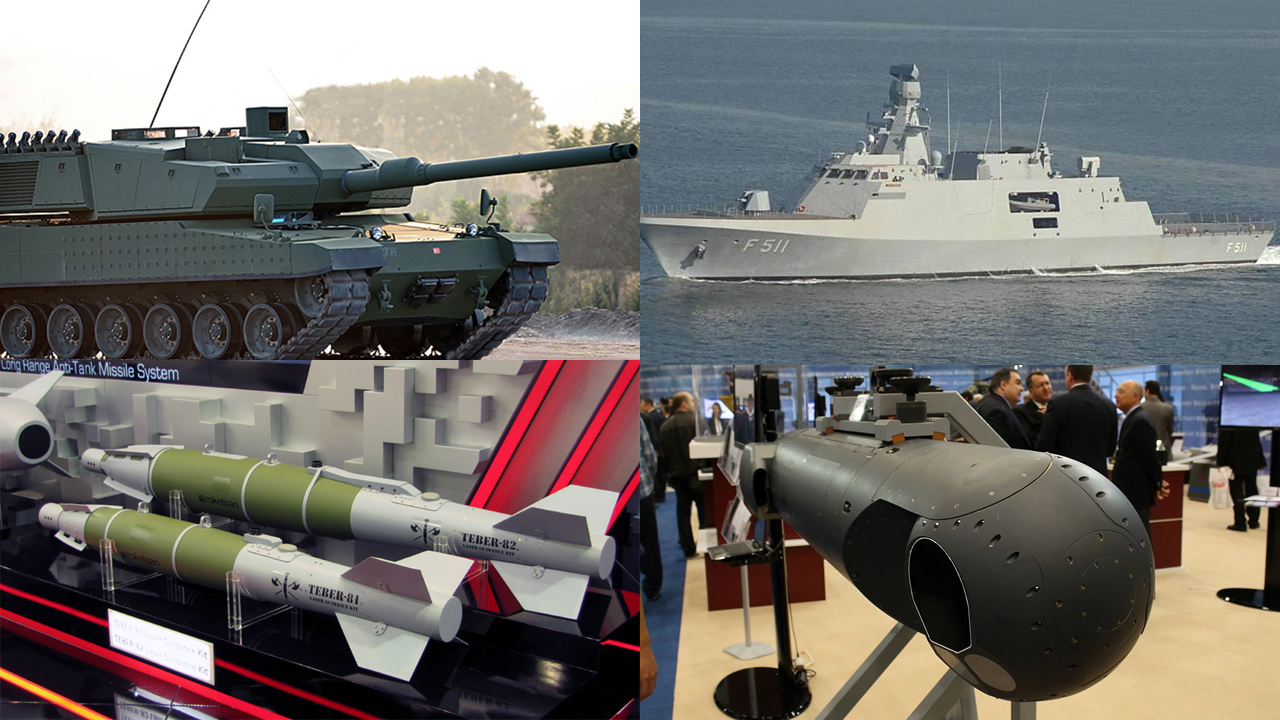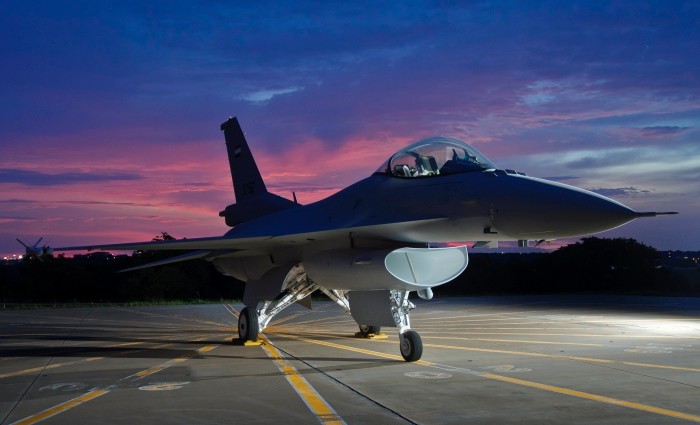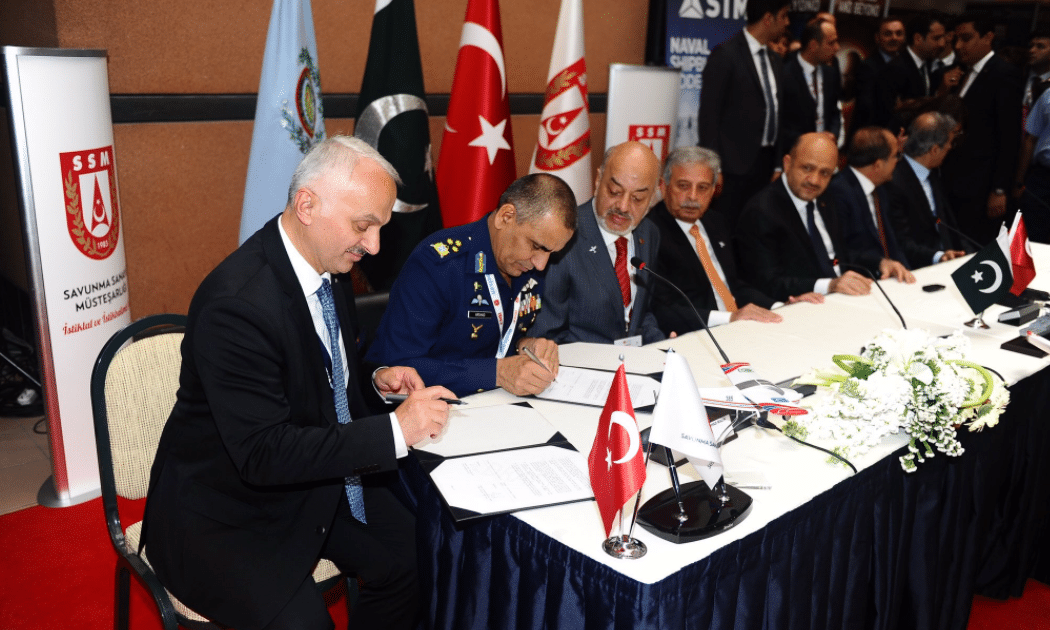2689Views 24Comments

Turkey and Pakistan agree to enhance defence industry ties
Last week, Pakistan and Turkey agreed to enhance their defence industry ties. The agreement was reached in Turkey during a visit by Lt. General (retired) Syed Muhammad Owais, Pakistan’s Secretary of Defence Production. The two sides also sought to explore possible joint-production initiatives.
Comment and Analysis
For the past 10 years, Turkey and Pakistan have built a steady foundation for extensive cooperation in a number of different areas related to defence and security. Not only have the two sides exchanged goods, but they have regularly trained with another in exercises (e.g. Anatolian Eagle and Indus Viper), but the two sides have also signed onto a bilateral pilot training and exchange program in 2015.
The Turkish defence industry is vast and competent, and as such, it offers the Pakistani armed forces many possible areas of armament acquisition and development.
At one point, the Pakistan Army was interested in the T-129 ATAK dedicated attack helicopter, but high costs and America’s unwillingness to pass export clearances for the powerplant pushed the Army away (to acquire the AH-1Z Viper from the U.S. directly). In recent months, there have been reports of the Pakistan Army being interested in the Otokar Altay main battle tank (MBT), though it may be more eager to acquire some of the Altay’s subsystems (e.g. active protection suite) for use on the al-Khalid and possibly forthcoming Haider MBT programs. The Pakistan Army also previously bought towed howitzers from the Turkish armament manufacturer MKEK.
The Pakistan Air Force (PAF) could also tap into Aselsan’s expertise in developing and producing electronic warfare (EW) and electronic countermeasures (ECM) solutions for support on the JF-17. Perhaps the PAF could even consider acquiring the ASELPOD to meet the JF-17’s air-to-ground mission needs. Roketsan could be consulted for sourcing laser-guided bomb (LGB) kits for Mk-81 and Mk-82 series general purpose bombs (GPB). TUBITAK SAGE’s HGK precision-guided bomb (PGB) kit for Mk-84 GPBs could be an option as well. Pakistan could consider the Cirit laser-guided rocket and Mizraak anti-tank guided missile (ATGM) as well. Overall, there are no shortage of options in the area equipping Pakistan’s aerial assets.
There are even numerous air defence options as well. For example, Pakistan could consider the Roketsan Hisar-series of short/medium-range surface-to-air missiles (SAM). The PAF could potentially take a look at the Aselsan Kalkan 3D phased-array radar as a possible option to replace its ageing Siemens Mobile Pulse-Doppler Radars (MPDR).
The Pakistan Navy presently operates two MRTP-33 fast attack crafts (FAC). In the late 2000s and early 2010s, the Pakistan Navy had sought to acquire a corvette design from Turkey, but severe economic issues forced the Navy step back from the idea. In place of the corvettes, the Navy began inducting Azmat-class FAC from China. In the long-term, the Pakistan Navy could potentially revisit the idea of exploring Turkish corvettes. If and when the Pakistan Navy is able to place new generation multi-mission frigates into its acquisition pipeline, it could consider acquiring command and control as well as combat management systems from Havelsan (e.g. GENESIS).
Although Pakistan has many options it could pursue in Turkey, tight funding will limit the extent Pakistan can engage with Turkey. At present, Pakistan’s focus will be on achieving existing operational objectives, such as imbuing the JF-17 with credible precision-strike capabilities. As a result, we may see a focus (at least in the short-term) on specific – and comparatively lower-cost – solutions, such as the ASELPOD and potentially air-to-ground munitions from Roketsan and TUBITAK SAGE.
Besides direct acquisitions, Pakistan could greatly benefit from Turkey in the area of improving its own defence industry, specifically in terms of upgrading existing facilities, such as Heavy Industries Taxila (HIT), Karachi Engineering & Shipyards Works (KSEW), Air Weapons Complex (AWC), etc. Through its technology transfer agreements as well as recent indigenous developments, Turkey has incredible exposure to recent developmental processes in the West. While not tangible like specific systems, cooperation in the form of learning, transferring expertise, assisting with manufacturing and assembly processes will offer considerable benefit to Pakistan in the form of long-term cost savings, enhanced efficiency, and ability to produce more complex systems.



24 Comments
by Bilal Khan - Quwa
New moderation rules are now in effect. *All* off-topic posts, insults, etc, will *not* be approved. Ensure that your comments are (1) constructive, (2) professional, and (3) on-topic. Threads will automatically be closed after 48 hours of posting.
by bla bla
I will appreciate this move
by jigsaww
Altay is probably the most attractive item for Pakistan. A 500 units would not hurt Pakistan, only the Hindustanis.
I hope Pakistan can start bringing back the looted monies from PPP and PML N gang. People like Dr.Asim are sitting on billions in looted money. A number of civilian and defence issues could be resolved.
by Bilal Khan - Quwa
If we’re led by people reclaiming the stolen money, then we’re talking about even more significant shifts in the country – e.g. mitigation of corruption, productive economic policy (broad and equitable taxation, efficient public sector firms, industrious private sector), etc. At that point, buying Altay wouldn’t be a big deal, we’d be debating whether it is worth investing money in the TFX!
by jigsaww
I was shocked to see the kind of money this one “confidante” of Mr. Zardari has looted in only few years time. An Almost Rs 500 Billion. By all means Mr. Zardari is sitting on at least three times more of that. And we’ve not even started with PML N.
To say the truth, If ever recovered, I would want 70-80% of this money spent on civilian sector in all honesty instead of defence deals and i know in Pakistan everyone would want that. Pakistan’s major requirements at this point are relating to Navy.
It’s a sorry state in current scenario.
by Bilal Khan - Quwa
For that much money to be recovered would indicate a massive shift in leadership, which I can guarantee will result in solid economic improvement. Defence expenditure should go up, but in relative terms, it’ll become a more marginal expense, which is the key.
by MT
Lots of re-exportable systems from third countries in altay
ll make it hard for turks to get export license from south korea
The Hisar sam is german repackaged Product.
But i must admit that Turks have indeed made good use of MTCR.
by Agni 5
Pakistan will only be bying as it has nothing to offer to turks ,the country filed only 16 patent last year with zero in design ,pakistan should increase its education & R&D budget & decrease its defense budget if it want to be taken seriously
by WARRIOR
No one is capable enough to challenge ppp n Pmln atm
Only pti is trying to raise voice but that is not enough they have just 30+ national assembly candidate atm
I don’t see anyone else trying to strengthen intitutations in kpk pti has done Manny reforms in institutions but for our public showcase structures r more important than strong institutions
We need another 20/30 years
My vote was near my house in f8 sector in 2013 elections but I was surprised to know that my vote was transferred to a totally different polling station in an small village known as nanin sukh in local body elections
Each and every institution of Pakistan is involved in such things specially election commission
Im afraid if nawaz gets success in destabilizing army than what’s goona happen
He didn’t said a single word about boshin yadev isn’t this alarming?
by Bilal Khan - Quwa
Greater budget allocation to defence is a symptom. Had it not been for dysfunctional leadership (i.e. the root problem), the country wouldn’t be under a lackluster economic banner or saddled with corruption.
by jigsaww
Pakistan’s priority will always be to have the ability and capability to punish Hindustan if and when it attacks Pakistan, actually there’s no if, there’s only when.
Pakistan has seen more corruption than ANY country in the world in last 10 years.. That is the problem, otherwise Pakistan even today is largest exporter of defence articles to one of the largest buyer of weaponry in the world, the Saudia.
by jigsaww
Hi. Good step but sad to see comments getting removed.
I was hoping to see more live moderation with more mods from your team, instead of pre-moderation and time limits.
by MT
its impossible for a country with 10 times smaller federal budget to compete with india.
pak without getting any fms,csf aid can’t afford turks defend products which are costlier than korean,Western;russsian
by Bilal Khan - Quwa
It’s unfortunate, but situation here went off the deep end in terms of sulfate exchanges. I’ll consider a couple of moderators (volunteers email me at bilal@quwa.org), but for now, it’s going to be strict.
by bla bla
500 units well one unit = 8 million dollar . Don’t you think its a bit too expensive ?
by bla bla
Dont worry Nawaz has reached the same end which Zardari & PPP did But the only problem is Imran Khan & PTI has internal problem in the party they need to solve them otherwise they will give walk over to corrupt Nawaz & Zardari On the other hand until election Mustafa kamal party will emerge as a main stake holder New political parties from Punjab will also join any time to start a new political struggle . Now enough of Nawaz & zardari
by Blue Marlin
nothing specail here. the usual stuff. belarus said the same as well as many other countries. even italy recently. as for turkey there is prospect in feilds of marine avation and land. But
marine being the f100 frigate which is $75 million more than the f22p which is not worth the extra amount. but they are building the type 214 sub which they can nab . which is what they originally wanted.
avation being the targeting pod which is uncertain and highly unlikely. the hurkus wont be procured as there no need as the super mushak fills the gap as starter trainer. the tfx is 10 years away unproven and likely to be expensive.
the altay tank is too heavy for the soft flat terrain of pakistan so there not much here but certain parts of it may be taken such as the aps.
by middleway1
Pakistan is not interested in “competing with India”. It is only interested in maintaining “credible deterrence” against India’s increasingly offensive capabilities. If you persist in still seeing that as “competition”, I’m afraid that is only the usual Indian paranoia about Pakistan.
by MT
16 patent is too little for a country which boast of nukes,ballistic & cruise missile.
pak is straining too much expenditure on defence in blind arms race with india.
it should find perfect combination of military import/assembly vs local r&d
But given common enemy as india; pak can reap benefits of importing/licensing weapons at subsidised prices frm china
Many countries with bigger economy than pak such as indonesia,Malaysia have smaller military &;stress on local r&d driven products
by WARRIOR
I don’t like Mustafa kamal party
Kaim khani standing with him n he is the person involved in killing of 300 innocent people at baldea factory no one wants to arrest him
N Manny other terrorist of mqm along with Mustafa I can nominate manny E.G mangi etc
Kamal himself is a good person but people around him r murderers n they need to face the judiciary or else we r not goona trust that party
Right now Mustafa kamal is running a washing machine n in that washing machine if u want to clean your murderers n other things you r welcome
by bla bla
There is still couple of year in next election . If the operation continues at its modest pace all gang war criminal & murders would be eliminated Mustafa kamal is a better alternative than MQM & PPP. For PTI & imran khan challenges are more inside the party there are differences PTI has to compete with PMLN in Punjab with bullo butts who are good in rigging and Punjab local judiciary is also with him and specially the trader of Lahore for Imran khan challenges are more But he is not realizing.
by bla bla
@saqrkh:disqus @jigsaww:disqus
some comparison on Turkish naval ship LDP Landing platform dock (TCG Anadolu)
(http://quwa.org/2016/05/07/turkey-pakistan-agree-enhance-defence-industry-ties/)
There are only two other countries in the world which possess such a ship “Turkey will be the third operator in the world of this ship type after Spain and Australia.” What about China Russia USA and France ? Draw a comparison between LDP and the Chinese Amphibious warfare ships type 071 transport dock
by WARRIOR
Challenges are for Pakistan not imran khan he is enjoying good life its us who r suffering
Its public of Pakistan who is suffering
If u ask me about my family we r not suffering from current situation of Pakistan our family income is almost $6000 to $8000 a month n its enough for our 7 family members but I know our most population is living below poverty line
We never participated in elections process of Pakistan before 2013 but now we r participating just for betterment of Pakistan
If our public kept sleeping n kept voting these shareefs n Zardaris than I don’t think Pakistan is goona progress much
I don’t follow any political party blindly if a today get a better alternate of pti I’m goona support that alternate
Imran khan is a clean person n he strengthened Manny institutions in kpk but I don’t see him getting more than 60/70 national assembly candidate in next election n with that he won’t be able to anything
We people of Pakistan must leave ppp n pmln pls don’t vote them again n again unless they reform there parties n get rid of Zardari n shareef
I Don’t know why new leadership is not emerging in Pakistan
by Abdul Rashid
Majority of the comments on here at least from the Pakistani defence enthusiasts are very good and constructive. Actually I would say the comments for me constitute at least 50% of the interest in frequenting this site. Sadly there are often unnecessary provocative remarks made by a handful of individuals and occasionally even some otherwise excellent commenters take the bait and respond in like (I have done the same in the past). Hopefully the new moderation rules coupled with banning frequent abusers will set the platform for a healthy discussion and lively debate.
Going forward I would like to see older articles re-opened for adding new comments. I have in the past posted comments and questions on older articles and received a response.